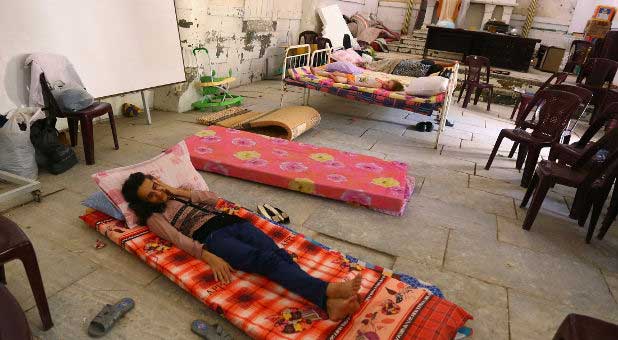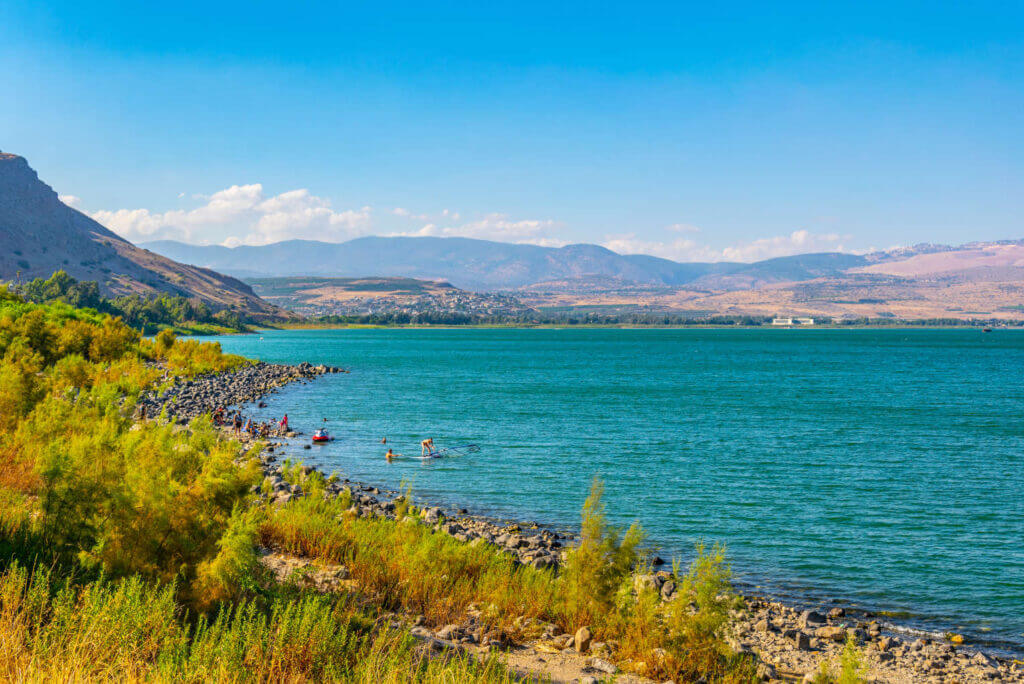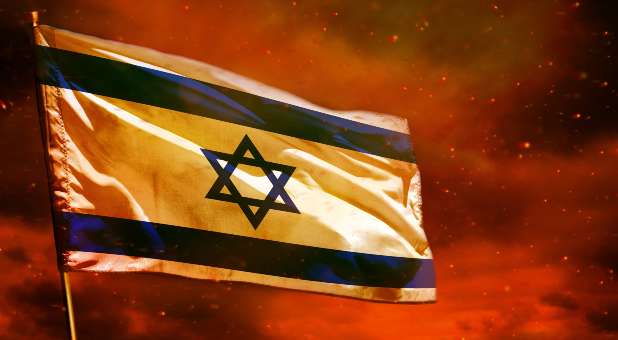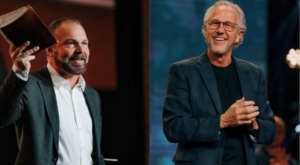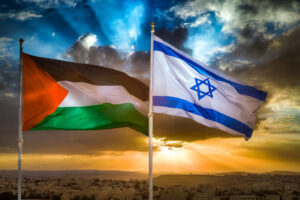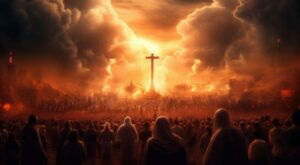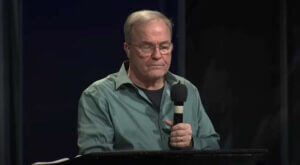A new map is being drawn across the plains of northern Iraq as Sunni militants of the Islamic State purge the rural landscape of religious and ethnic minorities that have co-existed for hundreds of years.
More than half a million people have been displaced across Iraq since June, when the north’s biggest city, Mosul, fell to Sunni insurgents who have harried Shi’ite Turkmen and Shabaks, Yezidis and Christians.
Even before the fall of Mosul, Yezidis, who follow an ancient monotheistic religion with elements of nature worship and are branded as devil worshipers by the hard-line Islamists, hardly dared set foot in the city, which has been a nerve center for the Sunni insurgency since 2003.
Now the Islamic State’s cleansing campaign has rid farmland and villages in the surrounding Nineveh province and beyond of longtime minority inhabitants, leaving the country’s north segregated along clear sectarian and ethnic lines.
Much of the north is now divided between the Islamic State of Syria and Iraq (ISIS) and the Kurds, who have expanded their autonomous region by as much as 40 percent as the central government’s presence has crumbled.
Minorities are being forced to choose which part of Iraq they belong to, hastening the country’s de facto partition and transforming its demography, perhaps irreversibly.
For many Shi’ites—the majority in Iraq overall but outnumbered by Sunnis in the north—the obvious refuge is south, where their sect predominates.
“We want to get out of Kurdistan and Sunnistan, and go to Shi’istan,” said a man from the city of Tal Afar, 70 kilometers (44 miles) west of Mosul, which was overrun by insurgents last month, driving out Shi’ite Turkmen like him en masse.
At a camp in an unused hangar of a construction company on the outskirts of Arbil, thousands of Turkmen, who have close cultural and linguistic links to Turkey, wait their turn to be bused to the airport and flown down to Baghdad and the Shi’ite cities of Najaf and Kerbala.
The flights have been chartered by Iraq’s Shi’ite-led government because most of the roads leading south from Kurdistan run through territory controlled by Sunni insurgents who have proclaimed a caliphate straddling the border with Syria.
As many as 15,000 Shi’ite Turkmen have been transported south by air or escorted in convoys across the only strip of border the Kurds still share with federal government forces—just 15 kilometers along a 1,000-km frontier.
At the Arbil airport, Shi’ite Turkmen—carrying the few belongings they managed to snatch up as they fled—wait to board a plane.
One 35-year-old man said most of his community would never come back here: “The north will be emptied of Shi’ites, the south will be emptied of Sunnis, (and) it will lead to the partition of Iraq. This is the new map of the Middle East.”
Ethnic Fault Line
The map is being traced through villages such as Omarkan, until recently home to both Sunnis and Shi’ites from the country’s small Shabak minority, a group that dwells in a triangle bounded by the Tigris and Greater Zab rivers to the east of Mosul.
Besides Mosul, about 20 towns and villages populated by minorities in Nineveh have been seized by militants, as well as one in Kirkuk province and several more around the town of Tuz Khurmato.
When Mosul fell on June 10, Iraqi soldiers withdrew from the area around Omarkan, and Sunni insurgents took over.
Initially, the militants reassured Omarkan’s Shi’ite residents they meant no harm, but one dawn early this month they awoke to find the village surrounded and sectarian slurs daubed on their walls.
Young Shi’ite men were rounded up and taken away. Sunnis were allowed to stay, while Shi’ite women, children and men who managed to escape fled to territory held by Kurdish “peshmerga” forces, which have advanced deeper into Nineveh.
Bulldozers are now carving new positions into the earth, digging a trench through fields of wheat that gives physical form to Iraq’s deepest ethnic fault line between Kurds and Arabs.
Omarkan is one of 11 Shabak villages on the Arab side of the line, which are all under insurgent control. Leaders of the Shabak community, who mostly follow a form of Shia Islam, though some are Sunni, have asked the Kurdistan Regional Government (KRG) to kick the Islamic State out and annex them.
The Kurds are planning to formalize the new facts on the ground in a referendum that will determine whether these territories join their region or remain part of Arab Iraq.
Until now, loyalties in the area have been mixed. Some of the Shabak receive salaries from Baghdad, others from the KRG. In elections, their votes are split between Shi’ite Arab and Kurdish parties, with which they have close historic ties.
“We are with the Iraqi army, but at the same time we are with the Kurds,” said a man from Omarkan, 11 members of whose extended family were among those kidnapped. “We want them to unite so they can repel those criminals.”
But for the time being, even Shabak and other minority voices that once opposed Kurdish expansionism now consider that infinitely preferable to the alternative: rule by the ruthless Islamic State group.
When militants threatened to invade two villages in Nineveh earlier this month, Shabak residents, both Sunni and Shi’ite, took up arms alongside the peshmerga to defend them.
A headmaster who fled the village of Shamsiyat, just south of Mosul, after his brother and four other Shi’ite Turkmen were shot dead by insurgents in an orchard, said he would rather stay in Kurdistan than go south, despite his religion.
“It’s true I’m Shi’ite, but my faith is between me and God, and on the ground, it’s the Kurds who protect us,” he said, a poster of Shi’ite Imam Ali on the wall of the house where he is staying in a sun-baked village southeast of Mosul.
“The (Kurdistan) region has proved it is present. The central government is not present.”
Convert or Die
The future of Mosul’s ancient Christian community is also bleak after the Islamic State set a deadline for them to convert, leave the city, or be put to death.
All but those who were too ill to get out have headed for Kurdistan or to Christian enclaves protected by peshmerga in the Nineveh plains, following a pattern set over the past decade. Many with the means have already emigrated in recent years.
“I no longer dream of returning to Mosul,” said 39-year-old math teacher Sarab Hazim al-Sabbagh, who fled to the Kurdish-controlled town of Bashiqa just before the Islamic State’s ultimatum expired over the weekend.
“If I get the chance, I will go back and sell my belongings, so I can leave Iraq and go abroad–be it to Somalia, Sudan. Anywhere is better than here.”
The area’s minorities are now faced with impossible choices. Sitting on a thin mattress inside a tent at a refugee camp on the road from Mosul to Arbil, Munta Kheder Qasem, a Shi’ite Shabak, relives the hunt for her 18-year-old son, who went missing in the village of Gogjali several weeks ago.
Qasem tells how she pleaded for information with a bearded man who was introduced as “the commander of the faithful” in a former government office appropriated by the Islamic State in Mosul. The bureaucrat wrote down her son’s name, Mahmoud, in a notepad and said he would be home within three days.
Seventy-two hours later, a relative found the body of Mahmoud, mutilated beyond recognition, in the local graveyard.
Once Qasem had buried her child, identifiable only from the color of his trousers, she fled in terror and is now staying in the north but hopes to go south.
“Our destiny is unknown,” said one of her relatives, who declined to be identified. “We are people without a destiny.”
Editing by Ned Parker and Will Waterman
© 2014 Thomson Reuters. All rights reserved.
See an error in this article?
To contact us or to submit an article


